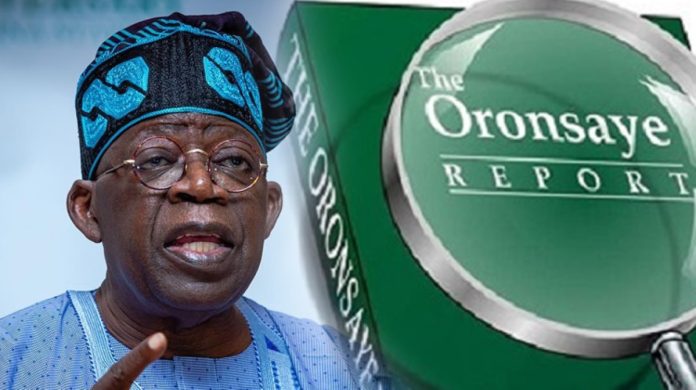Twelve years after receiving the Stephen Oronsaye Report, the Federal Government has given approval for the implementation of some of its recommendations aimed at reducing the cost of governance.
In a statement to State House Correspondents after the Federal Executive Council meeting at the Aso Rock Villa, Abuja, Minister of Information and National Orientation, Mohammed Idris, disclosed that 29 government agencies would be merged, with eight parastatals subsumed into eight other agencies. Additionally, four agencies will be relocated to various ministries, while one is marked for scrapping.
The Oronsaye report, which was submitted in 2012, proposed significant reforms to address the proliferation of federal government parastatals, commissions, and agencies, which then totaled 541.
Former President Goodluck Jonathan had established the Presidential Committee on Restructuring and Rationalization of Federal Government Parastatals, Commissions, and Agencies in the preceding year, with Stephen Oronsaye as its head.
The report recommended the reduction of statutory agencies from 263 to 161, the scrapping of 38 agencies, merging 52, and reverting 14 to departments in various ministries. It also suggested repealing the law establishing the National Salaries and Wages Commission and transferring its functions to the Revenue Mobilization and Fiscal Responsibility Commission.
Notably, the report recommended the amalgamation of Nigeria’s top three anti-corruption agencies— the Economic and Financial Crimes Commission, the Independent Corrupt Practices and Other Related Offences Commission, and the Code of Conduct Bureau.
Analysis by The Punch revealed potential savings of over N241bn if the report were fully implemented.
Addressing concerns about job losses resulting from the mergers and subsumptions, Minister Idris assured that affected employees would be accommodated within the new structures.
He emphasized, “It is important to note that the approval and adoption of the Oronsaye report by the council today does not imply job losses. All employees affected, whether moved, subsumed, or scrapped, will find placement within relevant government agencies.”
In a related development, the Special Adviser on Policy Coordination, Hadiza Bala-Usman, announced the specific agencies to be merged and subsumed, including the National Agency for the Control of HIV/AIDS merging with the Centre for Disease Control in the Federal Ministry of Health. Other mergers involve agencies in various sectors, such as education, infrastructure, and broadcasting.













